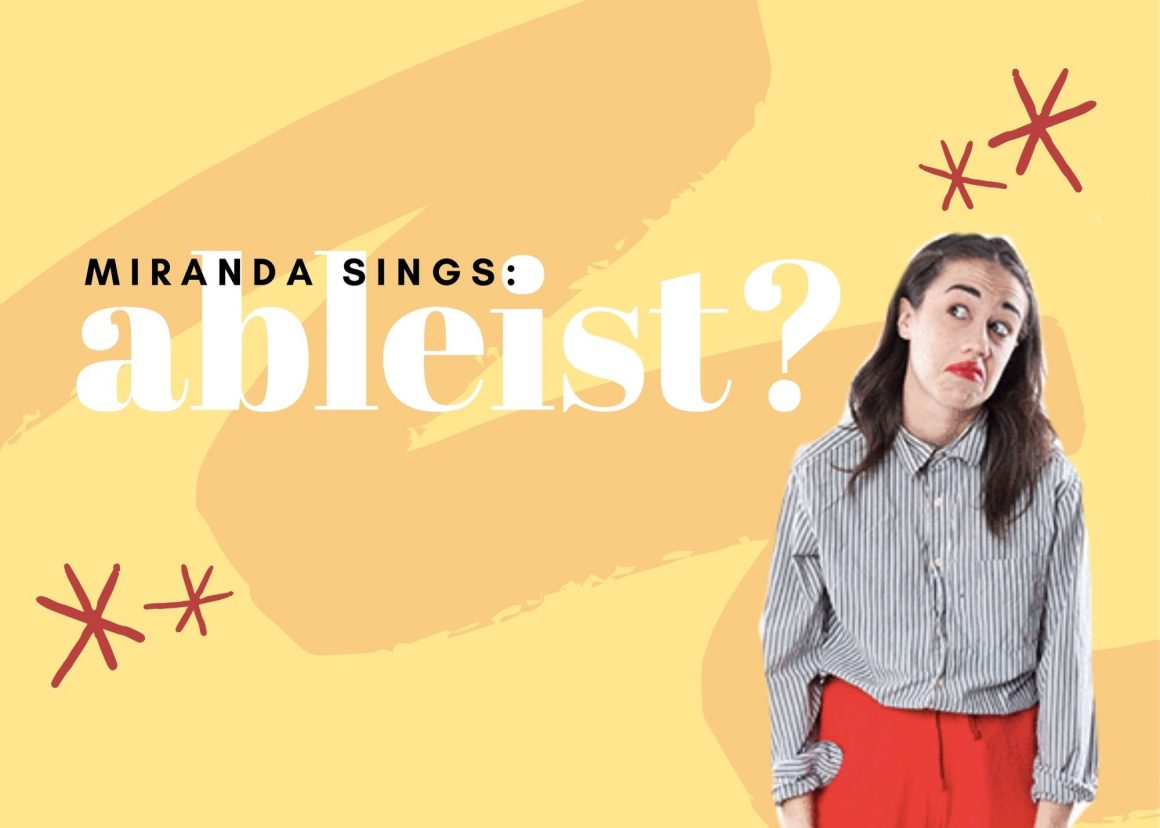
Is Miranda Sings ableist?
By Josie Simon, March 28 2022—
On July 9, 2022, YouTuber and actress Colleen Ballinger will perform as her character, Miranda Sings, at MacEwan Hall. Colleen Ballinger is one of the only internet celebrities to have broken through to mainstream media and her character, Miranda Sings, has become a household name.
Ballinger’s Youtube channel, Miranda Sings, started in 2008 and has gained over 10.9 million subscribers and over 2 billion views. Along with Shane Dawson, Michael Buckley, Ray William Johson, Philip DeFranco and Jodie-Amy Rivera, Colleen Ballinger is considered one of the first social media stars to emerge from Youtube. Through Miranda Sings, Ballinger helped establish the comedic norms and standards for social media influencers of the mid-2000s and her influence is still felt by the YouTube community today.
In 2016, Ballinger was the co-creator, executive producer and star of the Netflix original show Haters Back Off, which centered around the trials and tribulations of Miranda Sings and her dysfunctional family. In light of Ballinger’s success, is the characterization of Miranda Sings ablest or is she simply a manifestation of a daring comedic genre?
Since 2008, the portrayal of Miranda Sings has undergone a gradual evolution. The initial videos Ballinger posted onto Miranda Sings’s YouTube channel were predominantly covers of popular songs such as “Respect” by Aretha Franklin and “Love Shack” by the B-52s. During this time, Miranda Sings was characterized as an egomaniac who believed that she would eventually become famous. At the beginning of her time on YouTube, Miranda Sings was the manifestation of narcissism and vanity and her explicit personality faults fueled her comedy.
However, Ballinger’s portrayal of Miranda Sings would become increasingly outlandish and controversial as time progressed. Eventually, Miranda would develop poor social skills and a child-like personality and her speech impediment would intensify.
Arguably, Miranda Sings is most known for her explicit speech impediment. Ballinger switches from Miranda’s voice to her regular voice at her concerts to exaggerate Miranda’s pronunciation and tone difficulties. Comedians often create odd speech patterns while portraying unattractive, unintelligent or otherwise strange or unusual characters. Examples include Porky Pig from Looney Tunes, Bobby Boucher from The Waterboy and Jimmy Valmer from South Park.
Speech impediments, also called speech disorders, affect children and adults and can influence a person’s pronunciation, tone or forming of words. Common medical conditions that can cause speech impediments include autism spectrum disorder (ASD), oral cancer, dementia, Huntington’s disease, brain damage, vocal cord paralysis and respiratory weakness,among others. Speech impediments often lead to communication difficulties, low self-esteem and self-isolation which can result in depression.
Growing up, I had a severe speech impediment which required almost a decade of speech therapy. At eight years old, Stacey Dillsen from Zoey 101 on the Disney channel was the first time I saw a character with a speech disorder on television. Stacey Dilsen, who had a severe lisp, did not simply have a speech disorder. Rather, her speech impediment made her a social outcast in the show and a comedic relief for the audience. Stacey Dilsen was the token “weird girl” who lacked friends and made crafts out of cotton swabs and glue. The main characters, Zoey Brooks, Chase Mattews, Nicole Bristow and Logan Reese, mocked and ridiculed Stacey without repercussion. Further, Zoey 101 dehumanized Stacey Dilsen to a degree to which her bullies were celebrated.
At the time, only a handful of family members understood me when I spoke due to the severity of my speech impediment. Teachers and peers often disregarded my opinions, thoughts and feelings as they could not understand what I was saying. In many ways, I was invisible to the world. However, my invisibility did not end in childhood. Rather, it hangs on my back like a wet blanket. To this day, I struggle with low self-esteem and voicing my opinion.
Stacey Dillsen and Miranda Sings are not simply manifestations of a daring comedic genre. Like my experience with Stacey Dillsen, millions of children with speech impediments will observe how Miranda Sings is a social outcast who is ridiculed and mocked for her speech disorder and come to understand that that is how the world views them.
While I do not believe that Colleen Ballinger intentionally harms folks with speech disorders, Miranda Sings’ characterization perpetuates harmful stereotypes that directly influence how people with speech disorders, primarily children, view themselves and the world around them.
My experience as a so-called invisible child is shared with millions of other people around the world. Further, children with communication difficulties desperately need role models. We need to see successful and celebrated children and adults with speech disorders in the media.
We also need people without speech disorders to stop supporting comedians and characters who imitate speech impediments. While comedians such as Ballinger might not intentionally cause harm, millions of children are forming lifelong insecurities due to characters such as Miranda Sings.
This article is part of our Opinions section and does not necessarily reflect the views of the Gauntlet’s editorial board.
